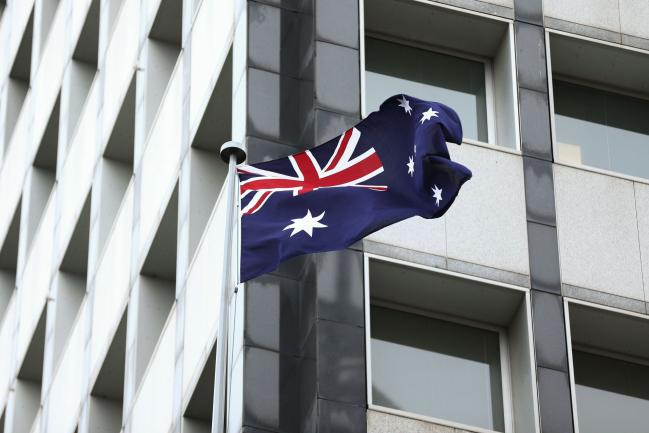(Bloomberg) -- Australia kept interest rates unchanged Tuesday as the labor and property markets’ strength gives the central bank room to wait and see how badly the economy will be hit by a slump in China’s growth.
Governor Philip Lowe kept the cash rate at 0.75% at the Reserve Bank’s first meeting of 2020, as predicted by most economists and traders. The jobless rate falling in the final two months of 2019 kept the RBA sidelined, despite the impending hit from wildfires and now the coronavirus.
The coronavirus “is having a significant effect on the Chinese economy at present. It is too early to determine how long-lasting the impact will be,” Lowe said in a statement announcing the decision. “The board will continue to monitor developments carefully, including in the labor market. It remains prepared to ease monetary policy further if needed.”
The Australian dollar rose, trading at 67.15 U.S. cents at 2:36 p.m. in Sydney, from 66.86 before the decision.
Australia’s economic fortunes are heavily dependent on the world’s number 2 economy: China buys one-third of Australian goods and services. Halting flights to limit the spread of the Coronavirus will strike at the heart of the education and tourism sectors, some of the nation’s most valuable exports. A slowing Chinese economy also has less need for iron ore, and the price is tumbling accordingly.
Yet, the RBA’s capacity to cushion the shock with easing monetary policy is questionable. Indeed, doing so could cause more harm than good.
The central bank lowered interest rates three times between June and October as it sought to buttress the economy. While the property market revived, consumer confidence sagged as households were spooked by the signal the cuts sent about the growth outlook.
The economy’s traditional shock absorber -- the exchange rate -- has answered and is down almost 4% in the past month.
The RBA releases its updated quarterly forecasts Friday in the Statement on Monetary Policy and many economists expect near-term gross domestic product will be cut as a result of the wildfires and now the virus in China. Fire reconstruction will boost growth in future quarters as well as the government’s loosened purse strings.
Lowe will have plenty of opportunity this week to elaborate on the RBA’s current stance, with a major speech at the National Press Club on Wednesday and three hours of parliamentary testimony on Friday. The latter will take place concurrently with the release of the Statement on Monetary Policy.
